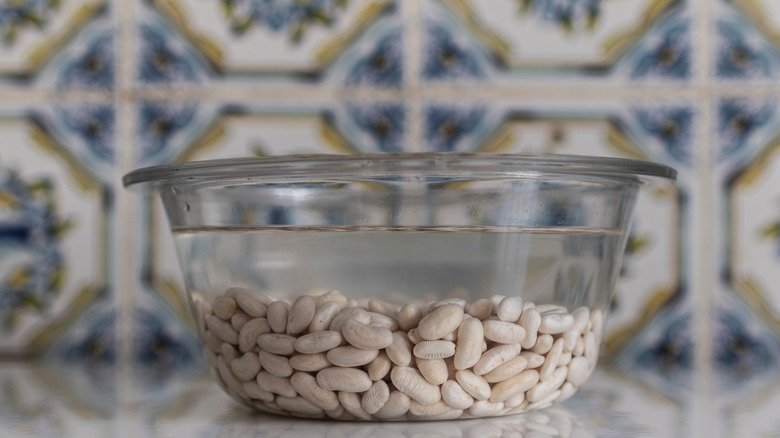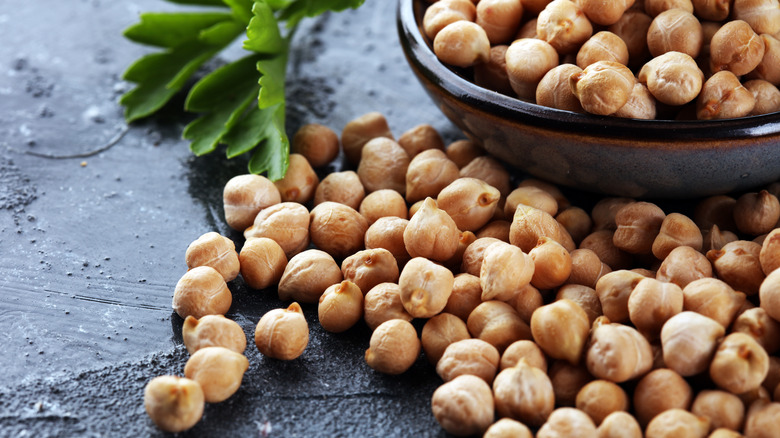The Reason You Shouldn't Cook Beans In Hard Water
Beans are a classic ingredient that can form the centerpiece of an entree. They add texture and flavor to hearty chili and can pair with some rice for a quick weeknight meal. There's plenty of motivation for making these nutrient-dense legumes a staple in your kitchen, if for no other reason than their long shelf life. One of the challenges of cooking with beans — especially dried beans — is making sure that they cook correctly. One of the biggest factors influencing that success might have to do with your water.
If you're cooking your beans in hard water, you may have a significantly harder time reaching that tender bite you're looking for. According to HomeWater 101, 85% of homes in the United States of America have hard water. Water is considered hard when it has a high content of dissolved calcium and magnesium (via the U.S. Geological Survey). It can cause clean glasses to look foggy, clog up pipes with mineral build-up, making cleaning products less effective. On top of all of that, all of that calcium and magnesium might be ruining your dinner.
How does hard water affect cooking beans
When dry beans are cooked in hard water, the calcium and magnesium bond with the cell walls. This hardens the beans and can dramatically increase the cooking time needed. The bond is so strong that no matter how long they're boiled, they might still have a tough, chewy texture to them because of the water they were cooked in.
If you have hard water and don't want to pay for a water softener, there are a few options out there. FineCooking recommends adding salt to the water before cooking. The site says those salt molecules will bond with the cells the same way as calcium or magnesium. The salt will prevent the harmful chemical interaction from happening while only slowing the cooking process slightly.
According to the New York Times, you can even go a step further by pre-soaking the beans in salty water. This method will let you use hard water for the pre-soak, but because the water is seeping into the bean slowly there won't be any chemical reactions. Instead, the water can simply soften the bean's starches. The added salt will also season the beans while they cook and cut down on cooking time later.
While this may seem like a lot of preparation for a humble legume, proper preparation can transform it into a crowd-pleasing favorite for the whole table.

